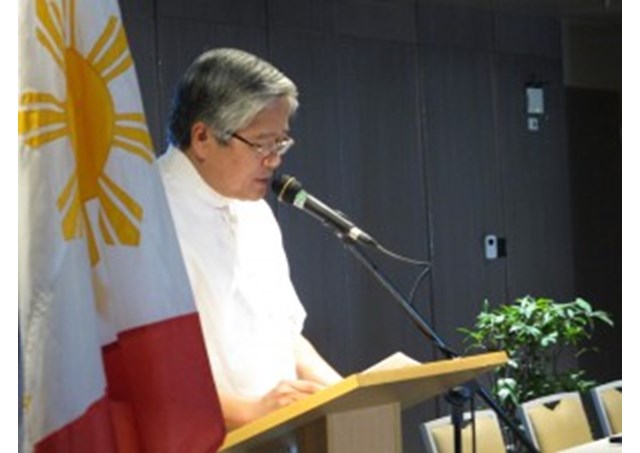
CBCP chief: Don’t silence groups excluded from BBL

The head of the Catholic Bishops’ Conference of the Philippines (CBCP) has called on the Philippine government not to silence nor ignore those groups in Mindanao that claim they were brushed aside from the deals leading to the Bangsamoro Basic Law (BBL), saying such a move will not help forge peace in the region.
“The sectors that claim they were not included in the deals leading to the BBL [Bangsamoro Basic Law] should not be silenced. Neither should they be ignored. I refer in particular to the MNLF [Moro National Liberation Front] and to indigenous cultural communities, as well as to Christian communities in Mindanao. No agreement that is perceived to be favorable to one sector alone will ever bring the sought-after peace for Mindanao,” says CBCP President Archbishop Socrates B. Villegas of Lingayen-Dagupan in an April 9 letter.
Armed, dangerous
The prelate expresses worry over what he describes as the “BIFF [Bangsamoro Islamic Freedom Fighters] phenomenon,” with its members who are “armed and dangerous.”
“They have given the nation concrete demonstration of the trouble they can cause. Shall we negotiate with them later and hammer another deal? While the MILF has promised to keep them in check, it has also been relevantly pointed out that relatives, though belonging to different organizations and associations, will not so easily restrain each other!” he notes.
Villegas observes likewise of the remnants of the Abu Sayaff Group (ASG), as well as of the Jemmayah Isalmiyah (JI), which while many judge to be already a “spent force,” its presence or demise in Mindanao has yet to be ascertained.
The prelate also asks what will be the future of traditional institutions in Mindanao be under BBL like the sultanates which seem to have been left out of the conversation.
Arguments from history
Noting some BBL advocates invoke historical arguments to back their claims for the existence of the entity known as the Bangsamoro, Villegas points out such “arguments from history are always tricky.”
“In fact, international law has rejected this approach altogether by the doctrine of uti possidetis…in respect to the drawing of boundaries, they stay as they are found,” he explains.
“Appealing to history in respect to claims of political power and autonomy will only confound issues more. Once upon a time, Soliman ruled over Muslim Manila. That piece of history is certainly no sound argument for Shari’a in Manila. I am not against Shari’a. I am only saying that some arguments are helpful, others are only distracting!” he adds. (Raymond A. Sebastián/CBCP News)
| All the contents on this site are copyrighted ©. |


